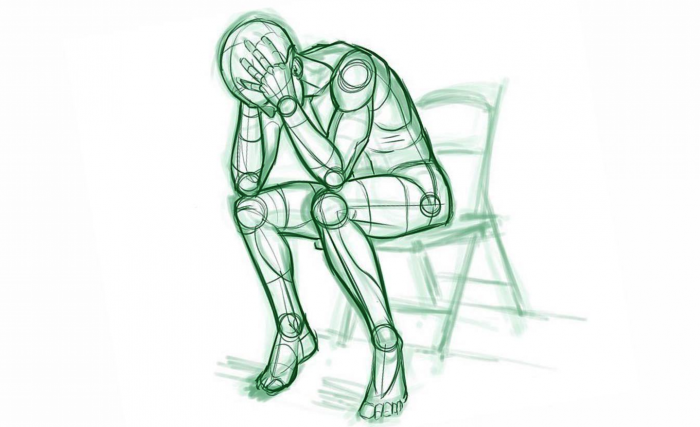“Stop crying, or I’ll give you something to cry about!”
This phrase is probably not uncommonly heard from a father to a son.
I’m curious, though, if it’s just not okay to cry, what kind of next-level pain will make tears an appropriate and understandable response? What kind of “something to cry about” do fathers think are necessary? What will finally make crying “okay?”
I’m ready to take some significant heat for this from other males, but the inability to cry is killing men. (Actually, I will be shocked if even one male comments on this piece.)
I’m a physician and neuroscientist with deep roots in developmental psychology. I study emotions, stored traumas, and the brain and body. So if I don’t talk about it, who will?
And, listen, I’m not one of those new age guys who openly cries at sunsets to make a point. I am competitive and aggressive—I hate to lose.
For me, to become an advocate of crying in other men is a stretch. Personally, I wouldn’t say I like seeing other men cry. I think as a species, we share that.
If a group of men went on a hunt 80,000 years ago, we wouldn’t want to see our hunting mate burst into tears in emotional distress about having to kill the animal. I think it’s safe to say that he would not be invited to other hunts.
The other guys would likely tell him to go back to camp and get his knitting. (This is a sarcastic way that men shame a female trait, like when someone can’t or doesn’t hit a ball very far and their buddy says, “You look like you hit that one with your purse.”)
Men crying after their team has won the Stanley Cup or the Super Bowl or the NBA championship, that is the only crying male I can watch without visceral discomfort, and even that is barely acceptable. I can admit that.
I think humans have an innate aversion to male tears, and I share that personally. But professionally, I know tears are how the brain learns to adapt internally to a situation that it cannot change externally.
Crying is an adaptive, integrative mechanism. It’s built into human beings and changes how we perceive an impossible situation, so it doesn’t drive us crazy. Literally.
Crying changes the brain; it helps us deal with things we cannot change—but it’s beaten out of many men when they’re young boys.
But if males continue losing one of nature’s most adaptive ways to cope and adapt, how do we think it’s going to end? Based on the massive amount of dysfunction in a society coming from males, not well.
Men do not handle stress well. If we did deal well with adversity, we wouldn’t be creating so much pain and suffering for our fellow humans. Again, our lives’ external situations do not change, but tears help us metabolize and neutralize the stress, so we don’t excrete that out into our environment.
Our pet is still dead, our job is gone, our parent is still sick, our partner still wants a divorce, but with tears, our perception of the situation changes. We’re able to call on our resources—do something constructive rather than destructive.
For this post, I went on my usual picture sharing site to find a picture of a man with tears—not one. Not one of them was outright crying (maybe a tear). The site has over 100,000 photographs that are free to share, and they have no images of a man with tears? Not even after a Super Bowl win?
That is just a small example of how taboo it has become in our society to see a man crying.
I am not saying we should start a puddle fest in front of our friends and families. But by the same token, men should be aware that tears may be the only method of fully processing trauma.
Without tears, that sh*t stays locked inside, and it manifests in harmful other ways—like telling a young boy, a son, to stop crying, or we’ll “give something to cry about.”
Maybe challenging our programming and allowing ourselves to cry on our own may turn the anger, aggression, addictions, and negative manifestations down a few notches.
Who knows; maybe we can start seeing the challenges in life with a different perception and then do something constructive about it.
Maybe there is something inside of us that is worthy of crying about.
Maybe that’s what these dads were getting at. (They just didn’t know it.)
 Share on bsky
Share on bsky






Read 50 comments and reply